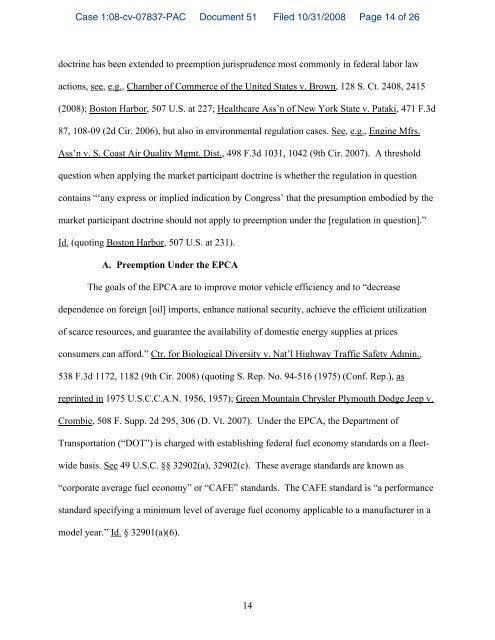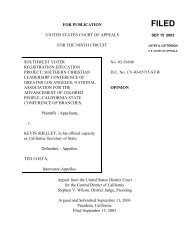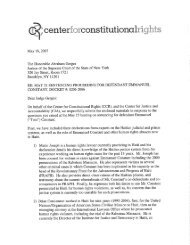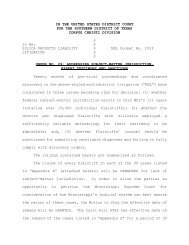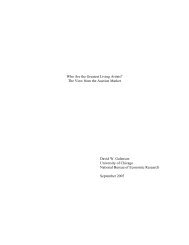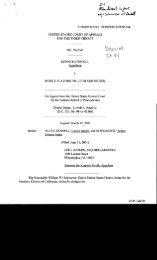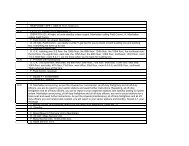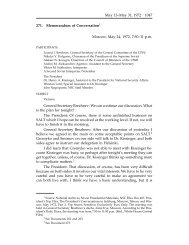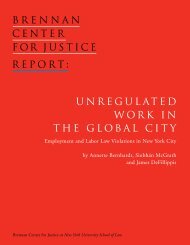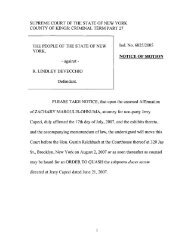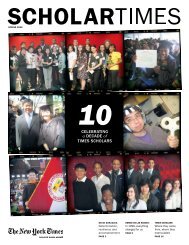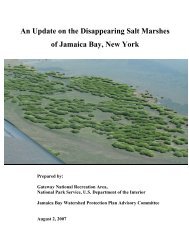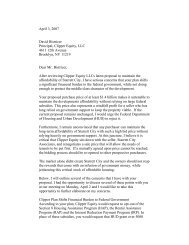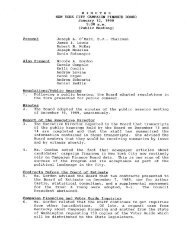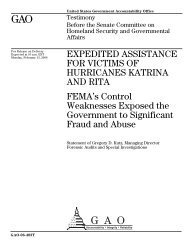UNITED STATES DISTRICT COURT SOUTHERN DISTRICT OF ...
UNITED STATES DISTRICT COURT SOUTHERN DISTRICT OF ...
UNITED STATES DISTRICT COURT SOUTHERN DISTRICT OF ...
Create successful ePaper yourself
Turn your PDF publications into a flip-book with our unique Google optimized e-Paper software.
Case 1:08-cv-07837-PAC Document 51 Filed 10/31/2008 Page 14 of 26<br />
doctrine has been extended to preemption jurisprudence most commonly in federal labor law<br />
actions, see, e.g., Chamber of Commerce of the United States v. Brown, 128 S. Ct. 2408, 2415<br />
(2008); Boston Harbor, 507 U.S. at 227; Healthcare Ass’n of New York State v. Pataki, 471 F.3d<br />
87, 108-09 (2d Cir. 2006), but also in environmental regulation cases. See, e.g., Engine Mfrs.<br />
Ass’n v. S. Coast Air Quality Mgmt. Dist., 498 F.3d 1031, 1042 (9th Cir. 2007). A threshold<br />
question when applying the market participant doctrine is whether the regulation in question<br />
contains “‘any express or implied indication by Congress’ that the presumption embodied by the<br />
market participant doctrine should not apply to preemption under the [regulation in question].”<br />
Id. (quoting Boston Harbor, 507 U.S. at 231).<br />
A. Preemption Under the EPCA<br />
The goals of the EPCA are to improve motor vehicle efficiency and to “decrease<br />
dependence on foreign [oil] imports, enhance national security, achieve the efficient utilization<br />
of scarce resources, and guarantee the availability of domestic energy supplies at prices<br />
consumers can afford.” Ctr. for Biological Diversity v. Nat’l Highway Traffic Safety Admin.,<br />
538 F.3d 1172, 1182 (9th Cir. 2008) (quoting S. Rep. No. 94-516 (1975) (Conf. Rep.), as<br />
reprinted in 1975 U.S.C.C.A.N. 1956, 1957); Green Mountain Chrysler Plymouth Dodge Jeep v.<br />
Crombie, 508 F. Supp. 2d 295, 306 (D. Vt. 2007). Under the EPCA, the Department of<br />
Transportation (“DOT”) is charged with establishing federal fuel economy standards on a fleet-<br />
wide basis. See 49 U.S.C. §§ 32902(a), 32902(c). These average standards are known as<br />
“corporate average fuel economy” or “CAFE” standards. The CAFE standard is “a performance<br />
standard specifying a minimum level of average fuel economy applicable to a manufacturer in a<br />
model year.” Id. § 32901(a)(6).<br />
14


